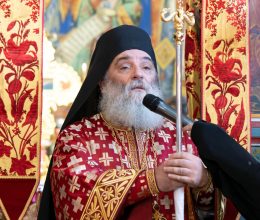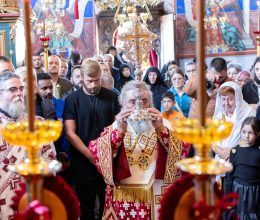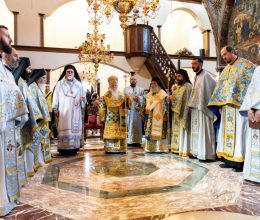A homily by His Eminence Metropolitan Timothy of Debar and Kichevo, on the occasion of the monastic tonsure of Brothers Elisha, Panteleimon, and Eustathios, at the Vespers of the feast of the Beheading of St. John the Baptist, September 10, 2024, in the year of our Lord.
In the name of the Father, and of the Son, and of the Holy Spirit!
Your Eminence, Your Grace,
Dear brothers and sisters,
Allow me this evening, on this festive Vespers, to address you, dear brothers and sisters. First and foremost, let us offer profound gratitude to our Savior, the Lord Jesus Christ, who has graciously allowed this holy sanctuary of ours, and indeed what we may call this Macedonian Lavra, to be revived with a monastic brotherhood under the wise guidance of its abbot, His Grace Bishop Parthenius of Antania. Let us also offer no lesser gratitude to the patron of this sanctuary, Saint John the Baptist, Forerunner of the Lord Jesus Christ. Now, I would like to say a few words of instruction to the monastic brothers Elisha (mk: Elisej), Panteleimon, and Eustathios, who this evening have taken their monastic vows.
This evening, you are born for the third time. I trust you understand what I mean. Your first birth was from your biological parents, at the moment when they brought you into the world as natural beings—children of God. Your second birth was in the sacred font of the holy mystery of Baptism, a rebirth for spiritual growth and the spiritual life. And now, this third birth is your monastic tonsure for the angelic life. From now on, you will be cut off from your old names, which will remain as a memory and a dream. From this evening, we entrust you to your heavenly protectors, to your intercessors whose names you now bear. The prophet says in Holy Scripture: “It is good for a man to bear his yoke in his youth” (Lam. 3:27). You, in your youth, have taken up the monastic vows—the yoke of obedience, chastity, and poverty. You have both the time and strength to bear them. You have already expressed the desire to do so. Now, show the effort to fulfill them.
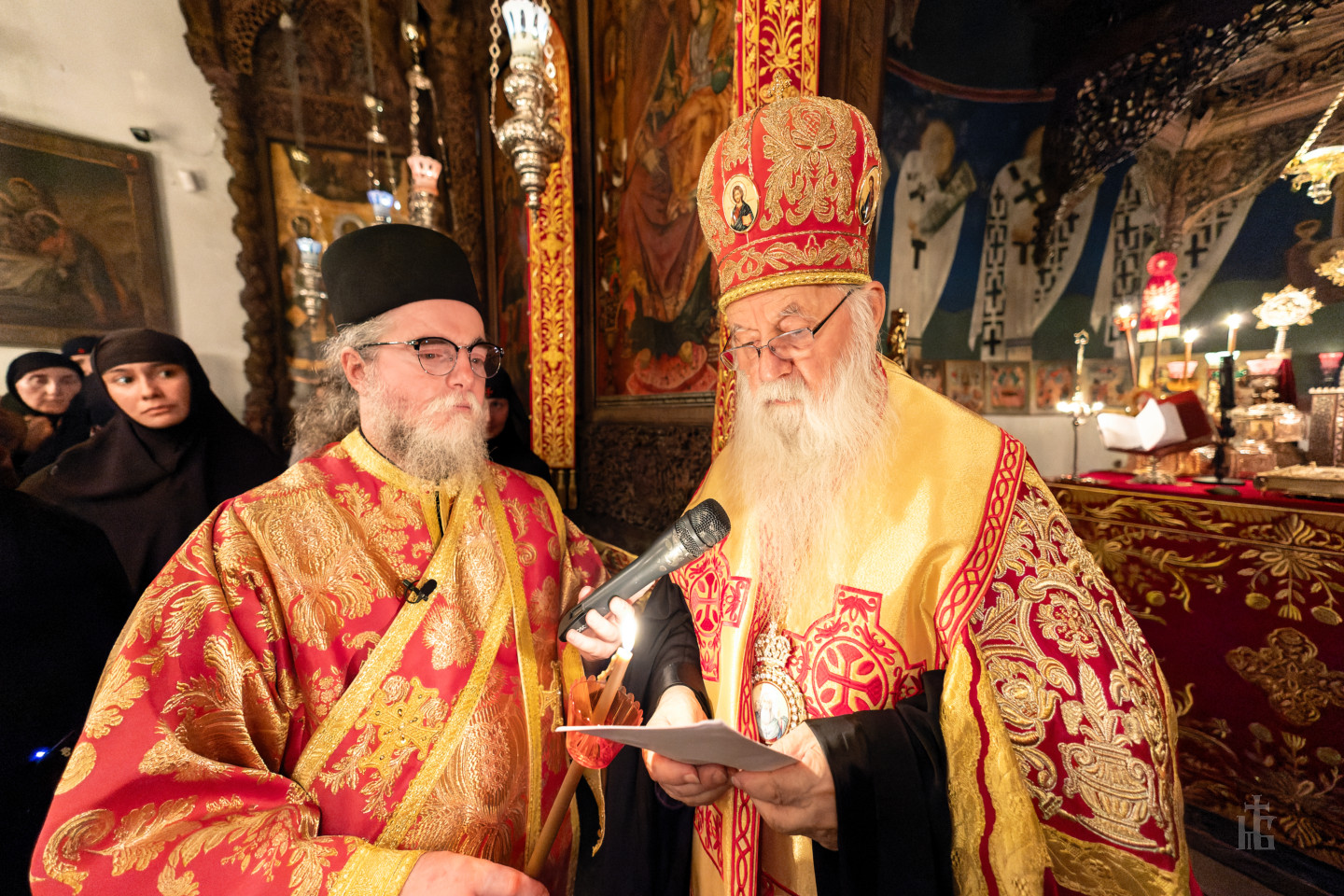
Obedience is the holy will of God, and it is the obligatory duty of the monk, who has renounced himself and now lives for God and for others, following the words of Christ: “If anyone desires to come after Me, let him deny himself, and take up his cross, and follow Me” (Mark 8:34). The care of the Church’s leadership, the spiritual father, the abbot, and the senior brothers in the monastery along the path of spiritual growth, also requires respect, obedience, and conformity to their rich counsel and beneficial teachings.
The chaste life is blessed. Because of its exalted nature, Saint Paul desired that all might remain virgins as he was. Also, absolute poverty is required, in accordance with the words of the Lord: “You cannot serve both God and Mammon” (Matt. 6:24), that is, earthly wealth.
However, beyond these foundational monastic vows, many others await you. The monastic life is called angelic. The Lord Jesus Christ Himself says that the angels in heaven always behold the face of their Heavenly Father (Matt. 18:10). Therefore, your spiritual gaze must also be directed toward heaven. According to the seer and prophet Isaiah, the angels surround the throne of the Lord and continuously glorify God (Isa. 6:3). Likewise, you must glorify God, both in the Church and among people, through your life and deeds. You must proclaim the word of God like the angels, just as their very name indicates, for they are messengers of the will of God. Saint Paul says of the angels: “Are they not all ministering spirits sent forth to minister for those who will inherit salvation?” (Heb. 1:14), that is, to serve mankind. Therefore, you too are obligated to be in continuous service to people in their needs, especially along the path to their salvation. You are called to labor in planting goodwill among people and to work for the preservation of peace in the world.
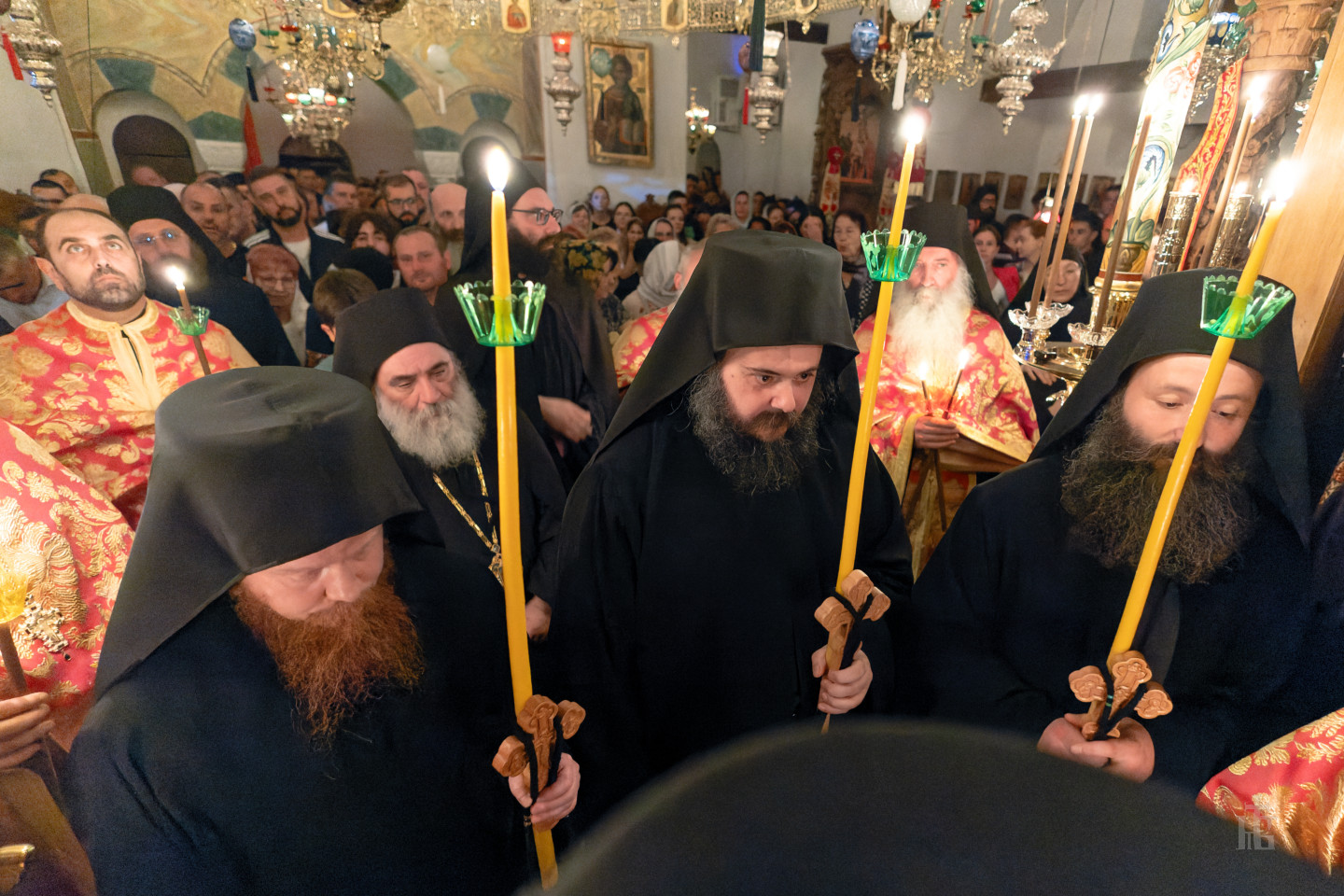
In life, you will face many trials and various temptations. Be prepared to overcome them, and clothe yourselves with the armor of battle against the lust of the flesh, the lust of the eyes, and the pride of life (1 John 2:16). Perform your personal ascetic struggles and ecclesiastical services always with the intent to avoid the temptation of pride, for it is said: “God resists the proud, but gives grace to the humble” (1 Peter 5:5).
As you carry the worthy and heavy cross of the monastic struggle, instead of the support of the parents you have left behind, you will now be supported by the Heavenly Father and the spiritual Mother, the Most Holy Theotokos. Likewise, instead of the support of the brothers, sisters, and relatives you have renounced, you will now have the support of countless saints of God, and above all, from your heavenly protectors, whose names you bear. Then you can hope to inherit that which Saint Paul speaks of: “Eye has not seen, nor ear heard, nor has it entered into the heart of man, the things which God has prepared for those who love Him” (1 Cor. 2:9).
Bear your monastic vocation for the glorification of the angels and for the defeat of the demons!
Amen!


